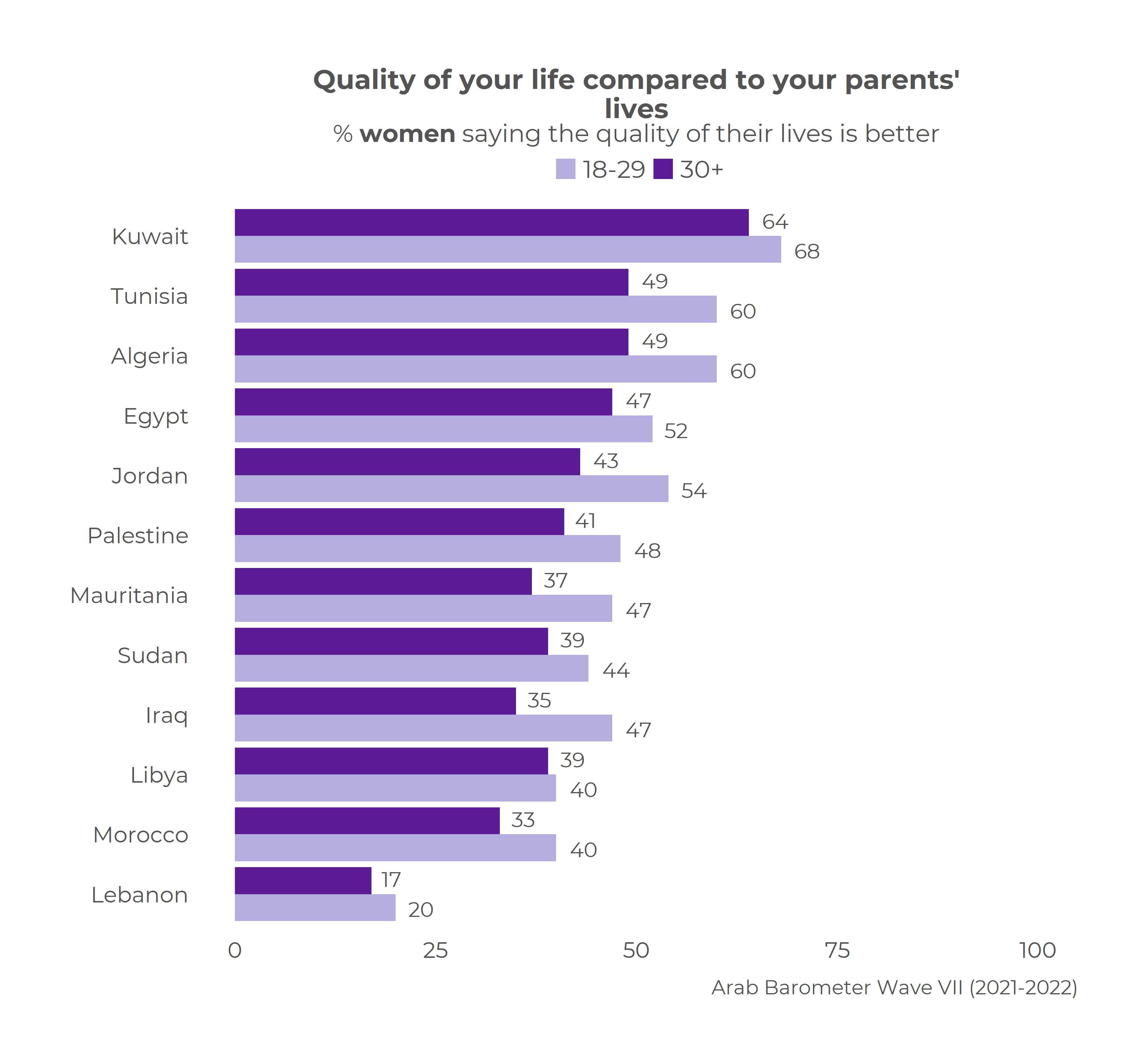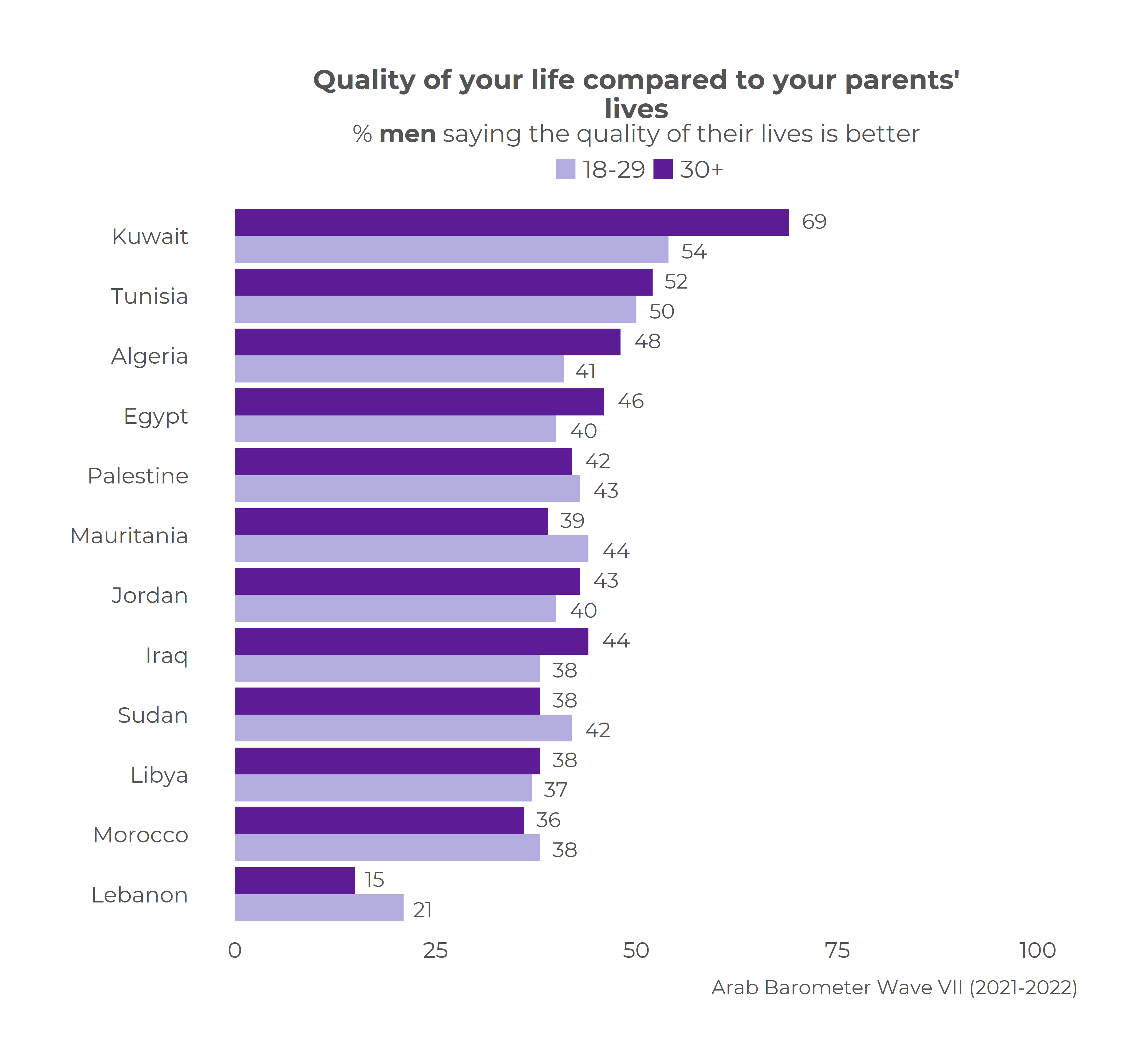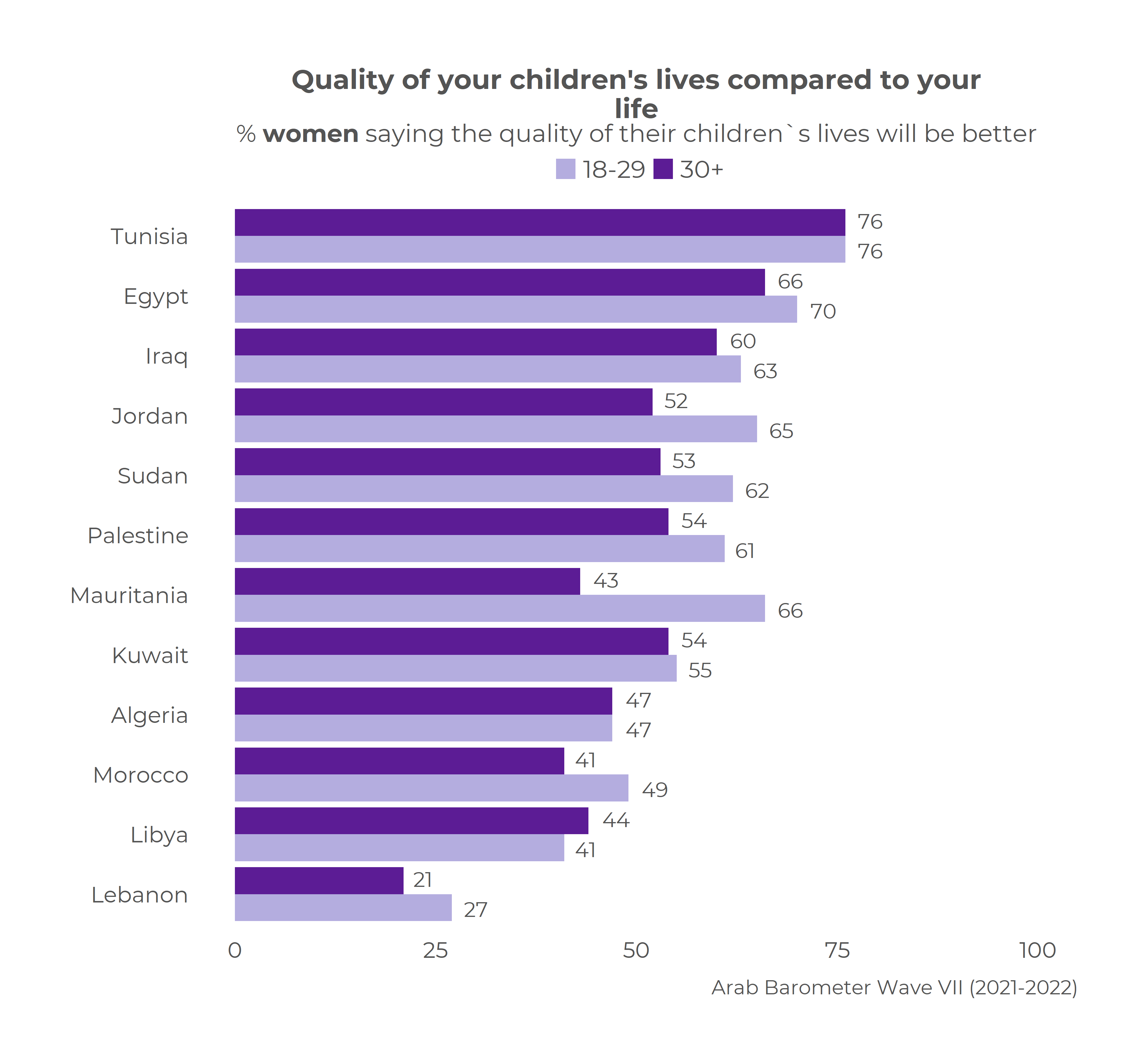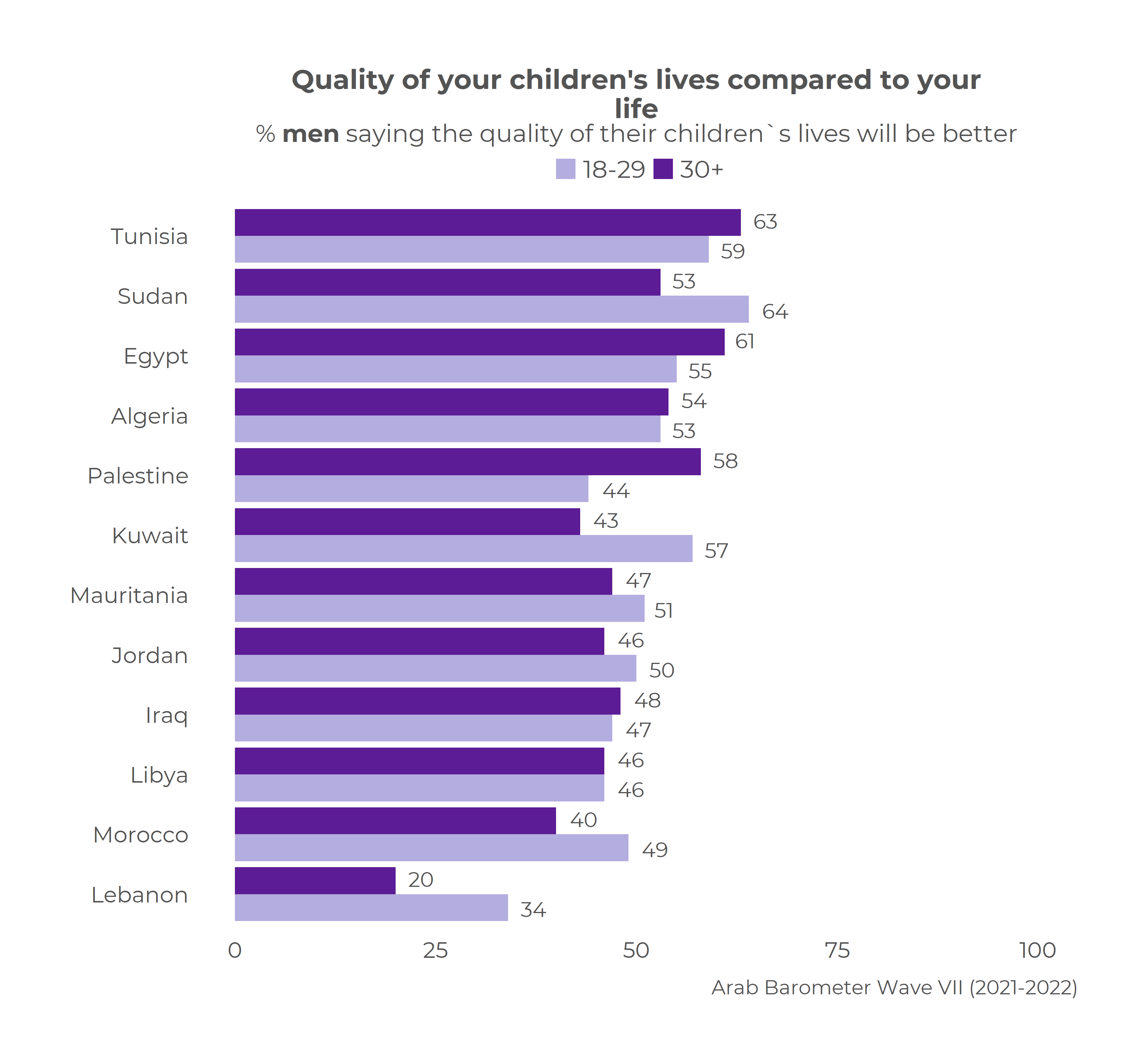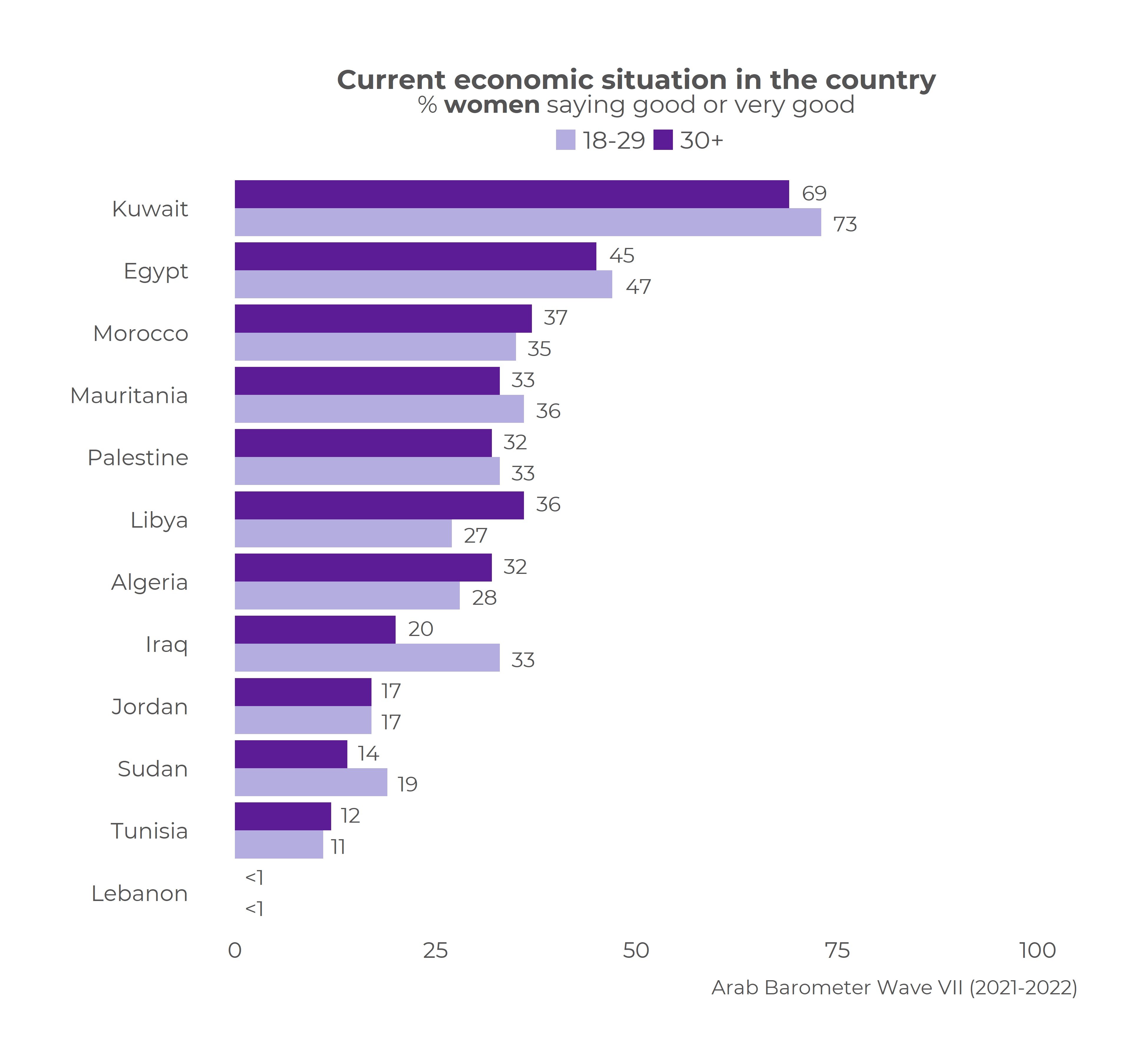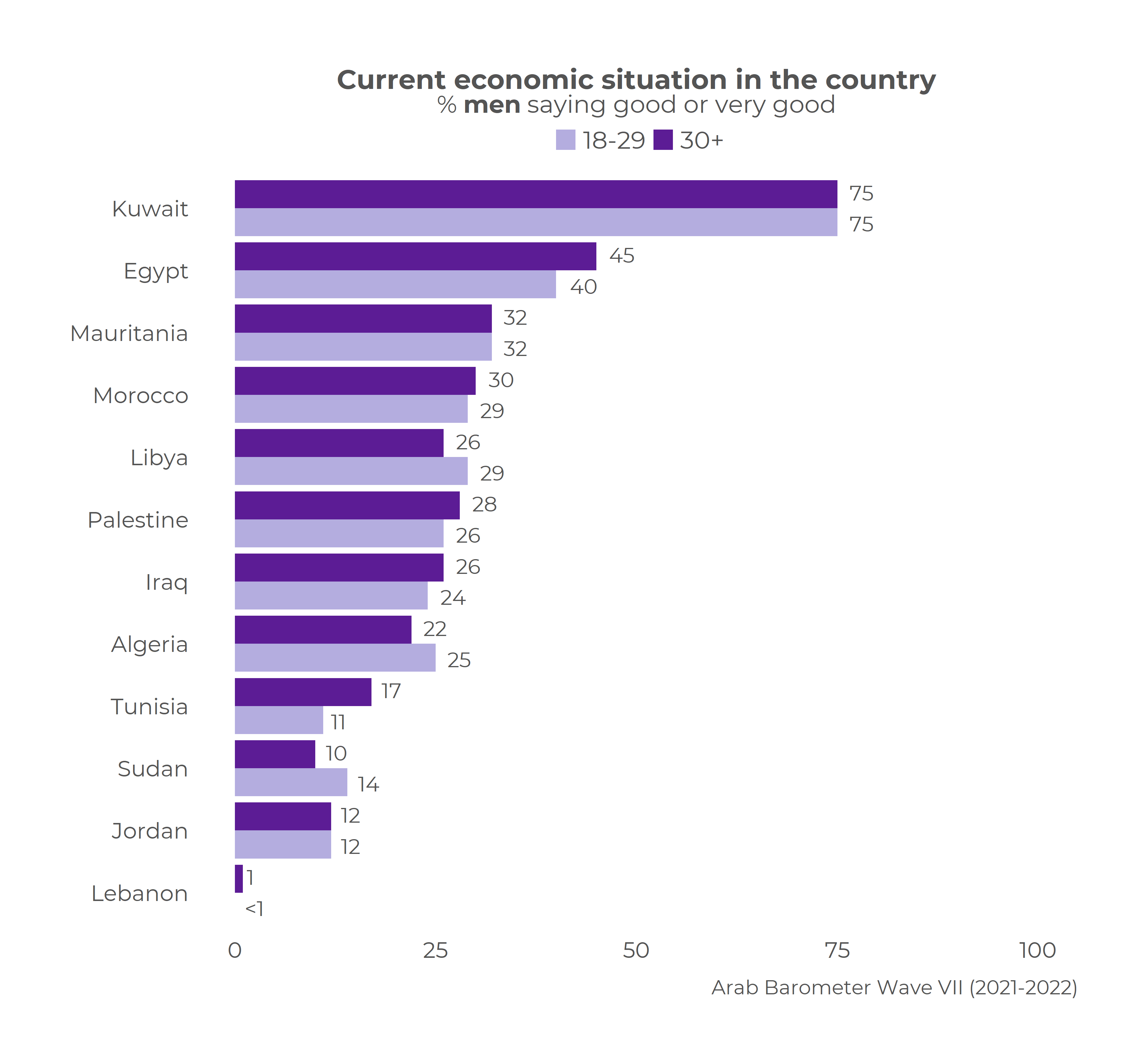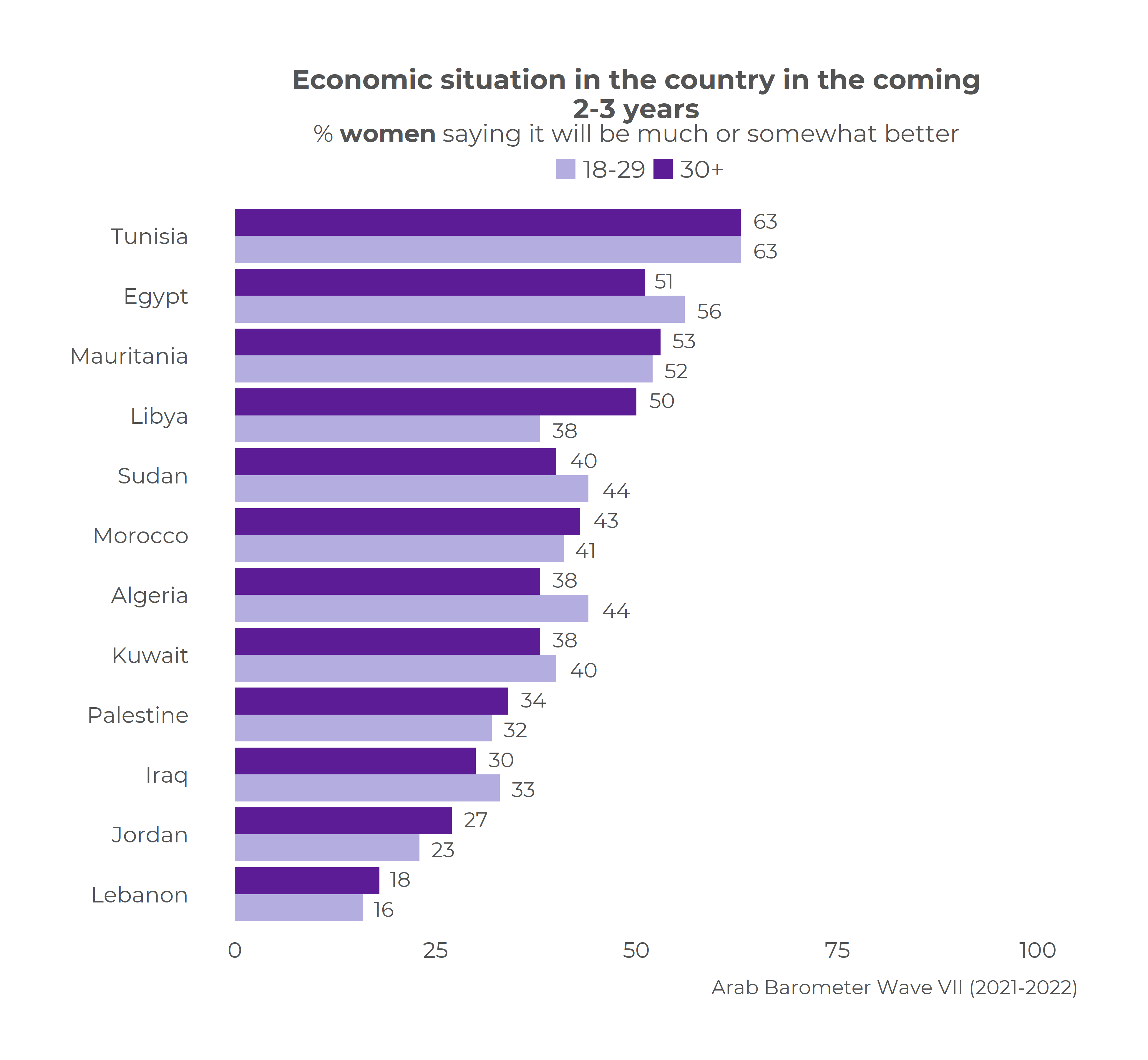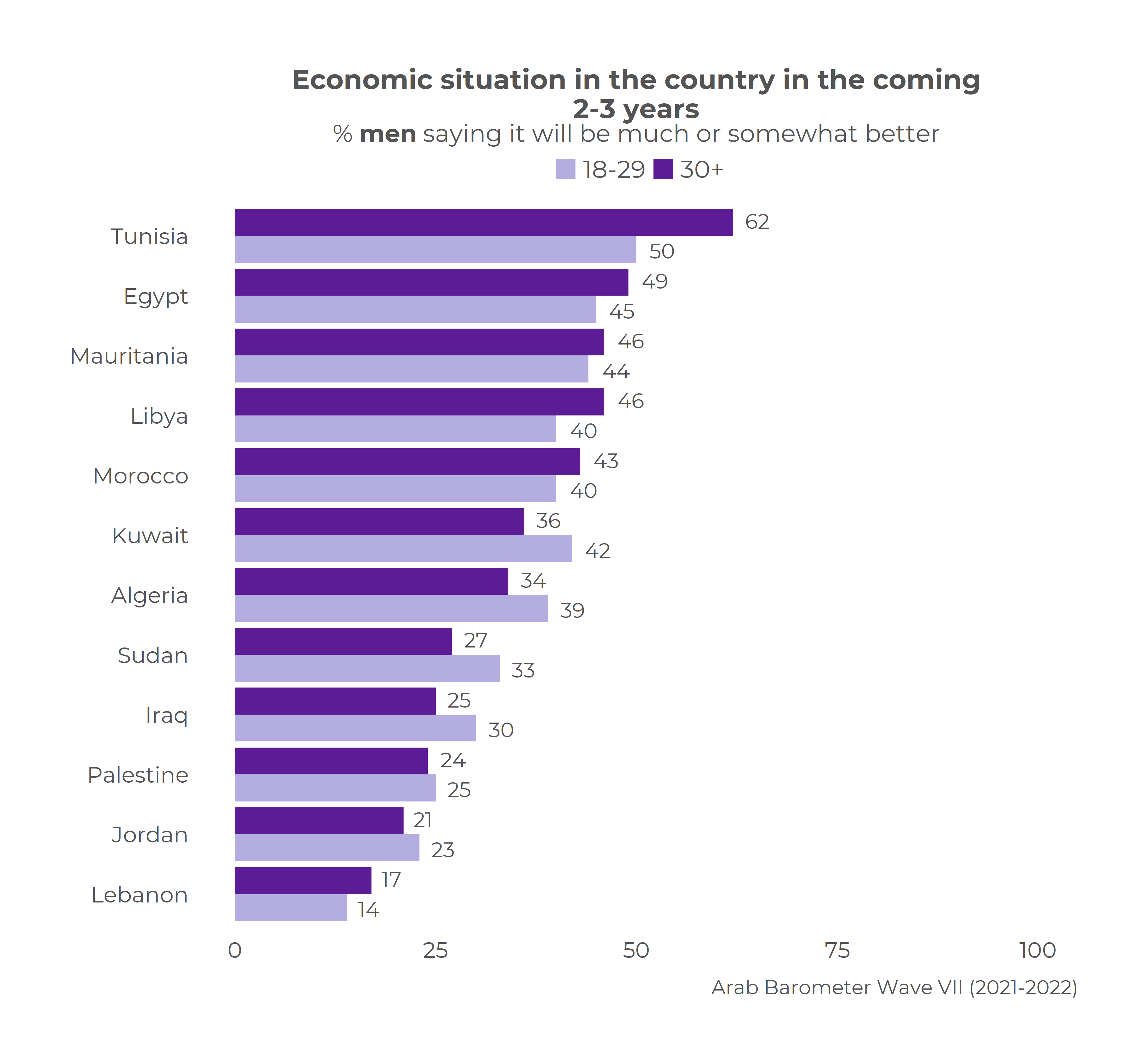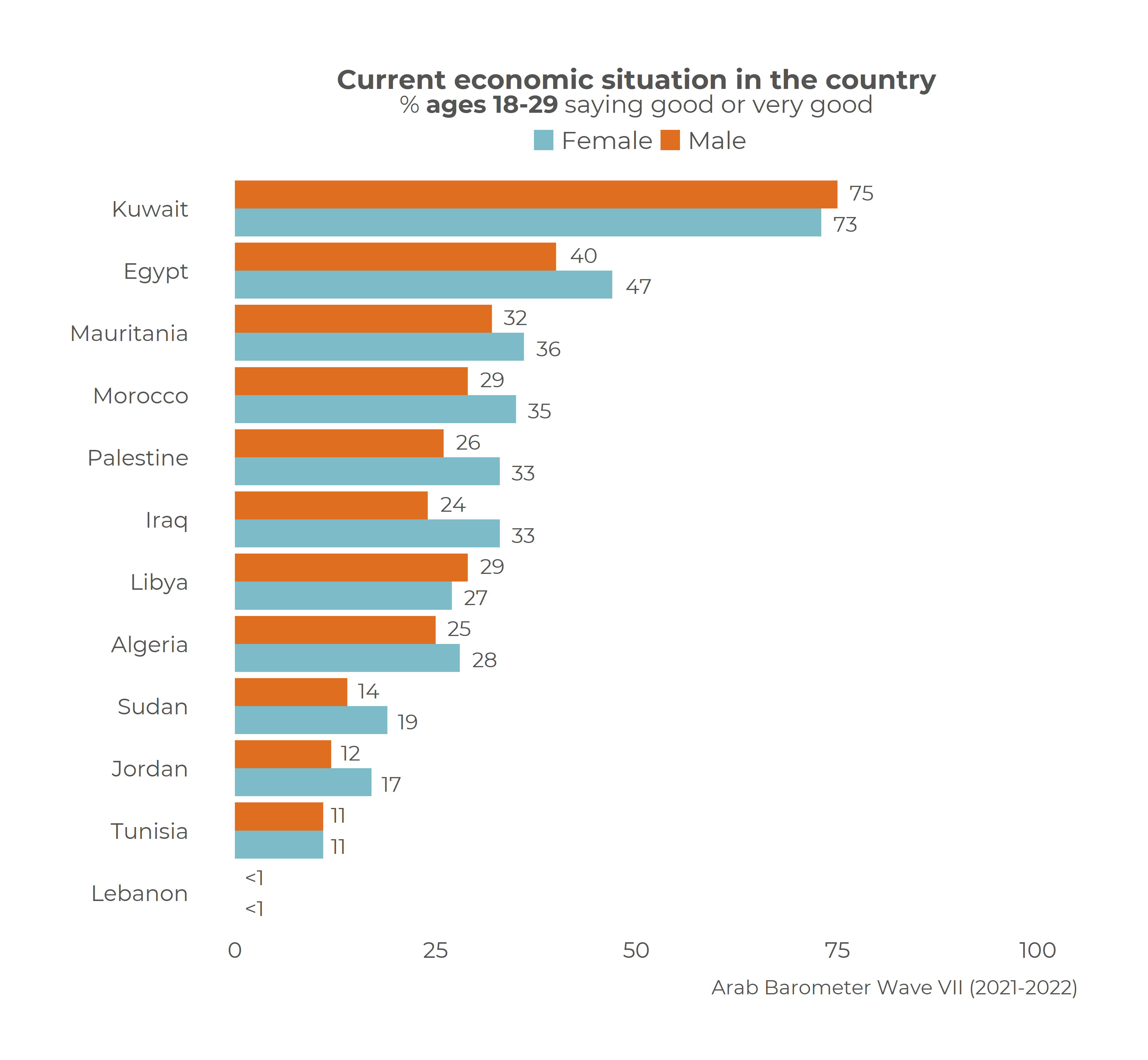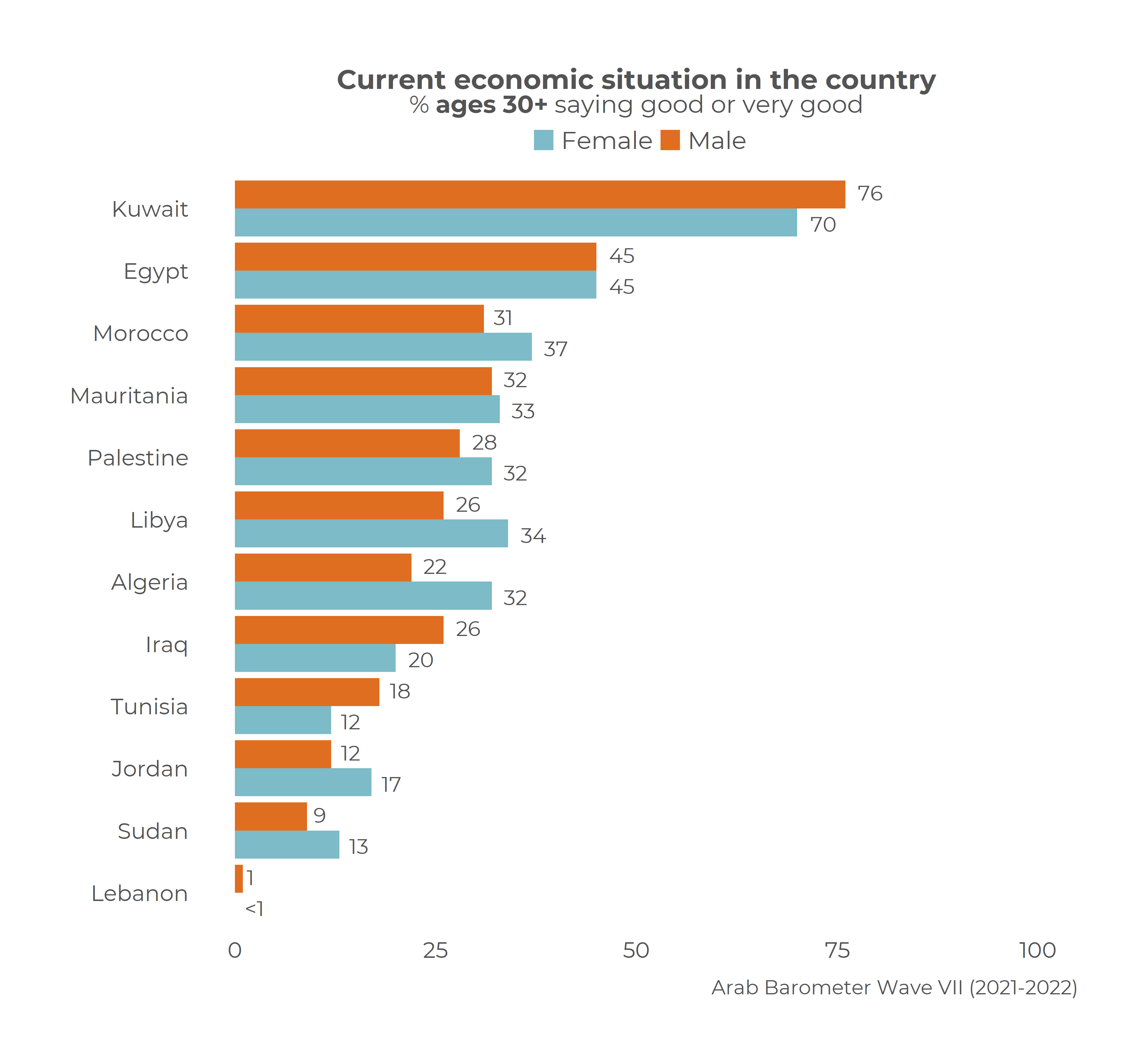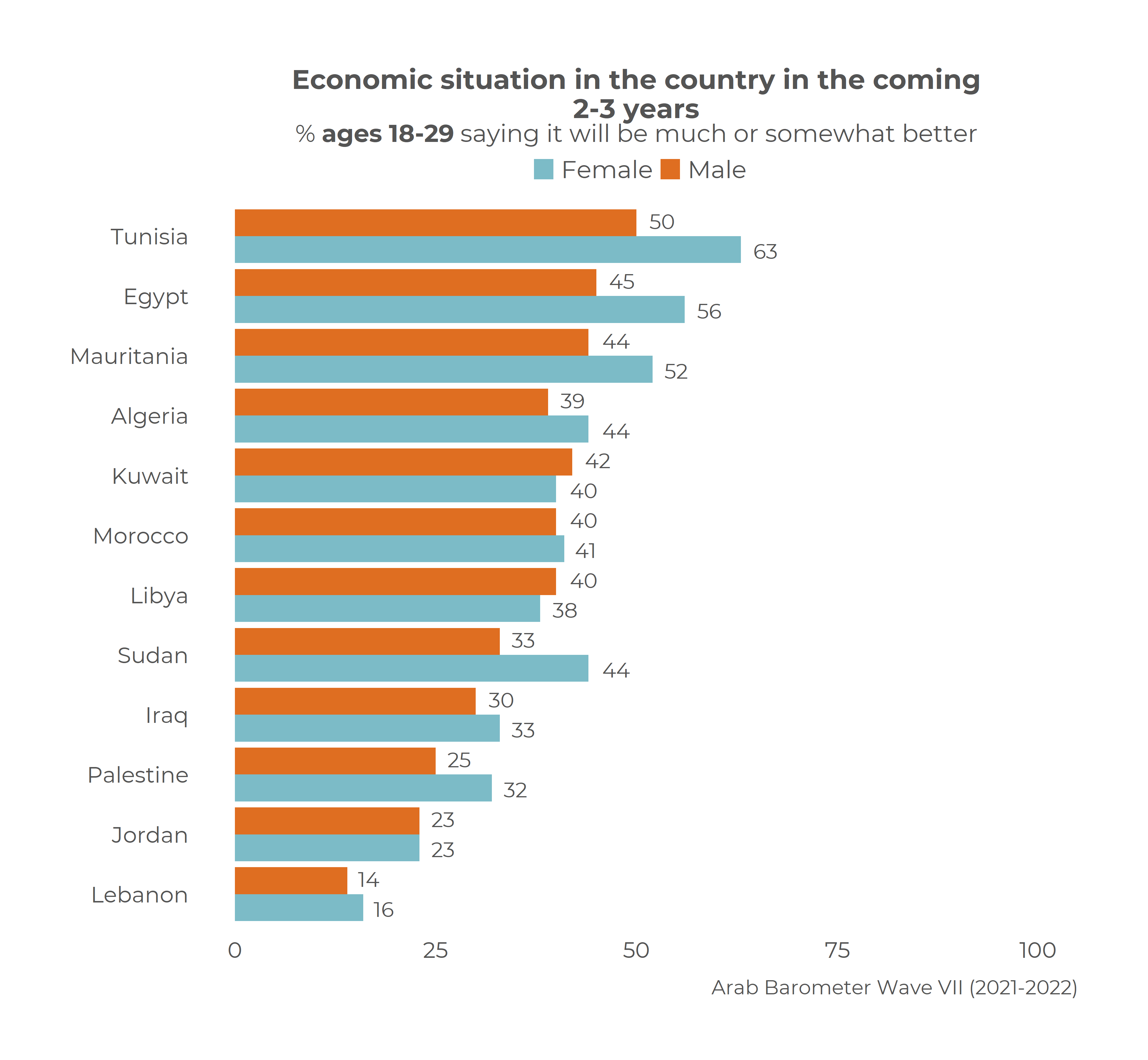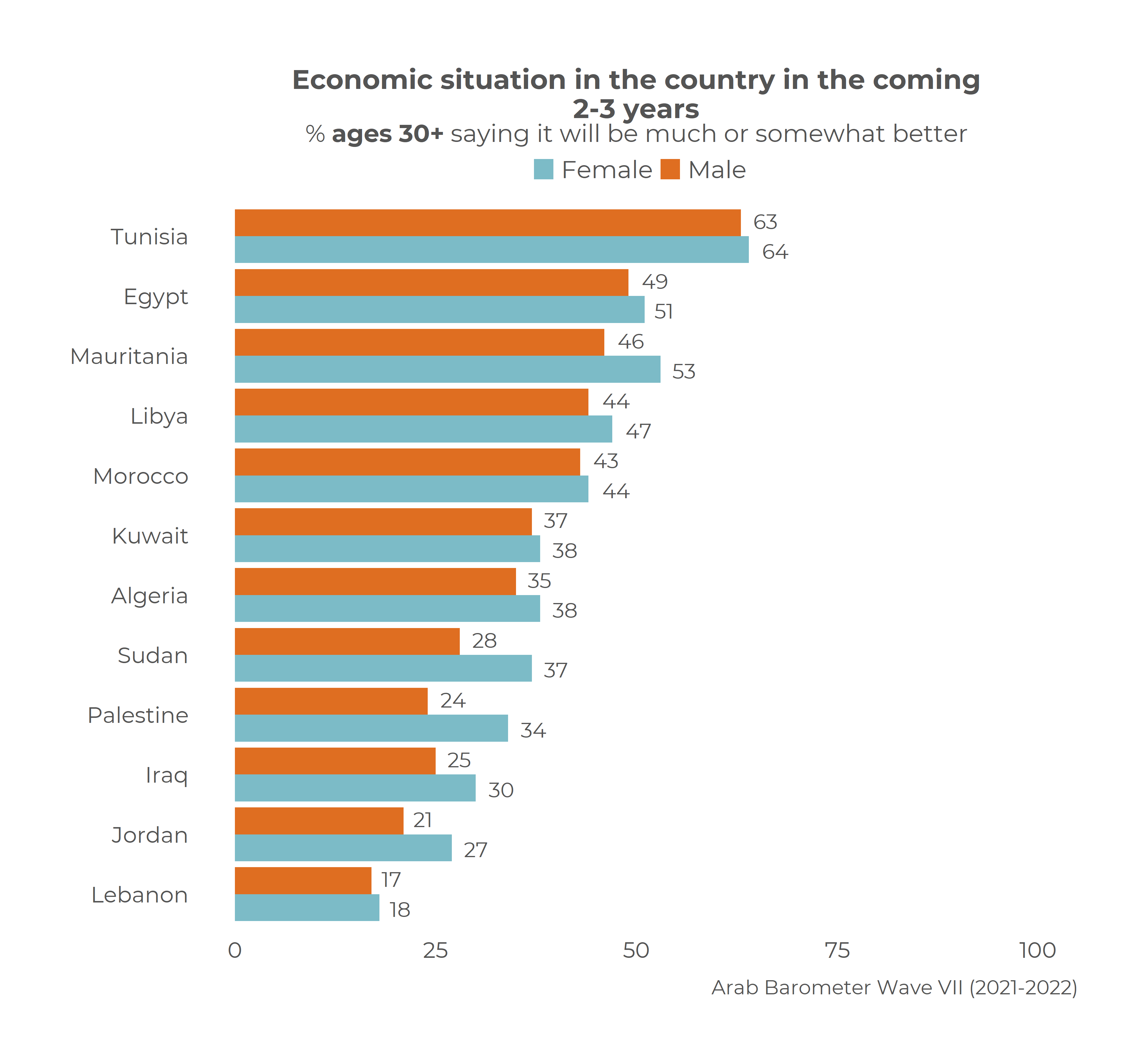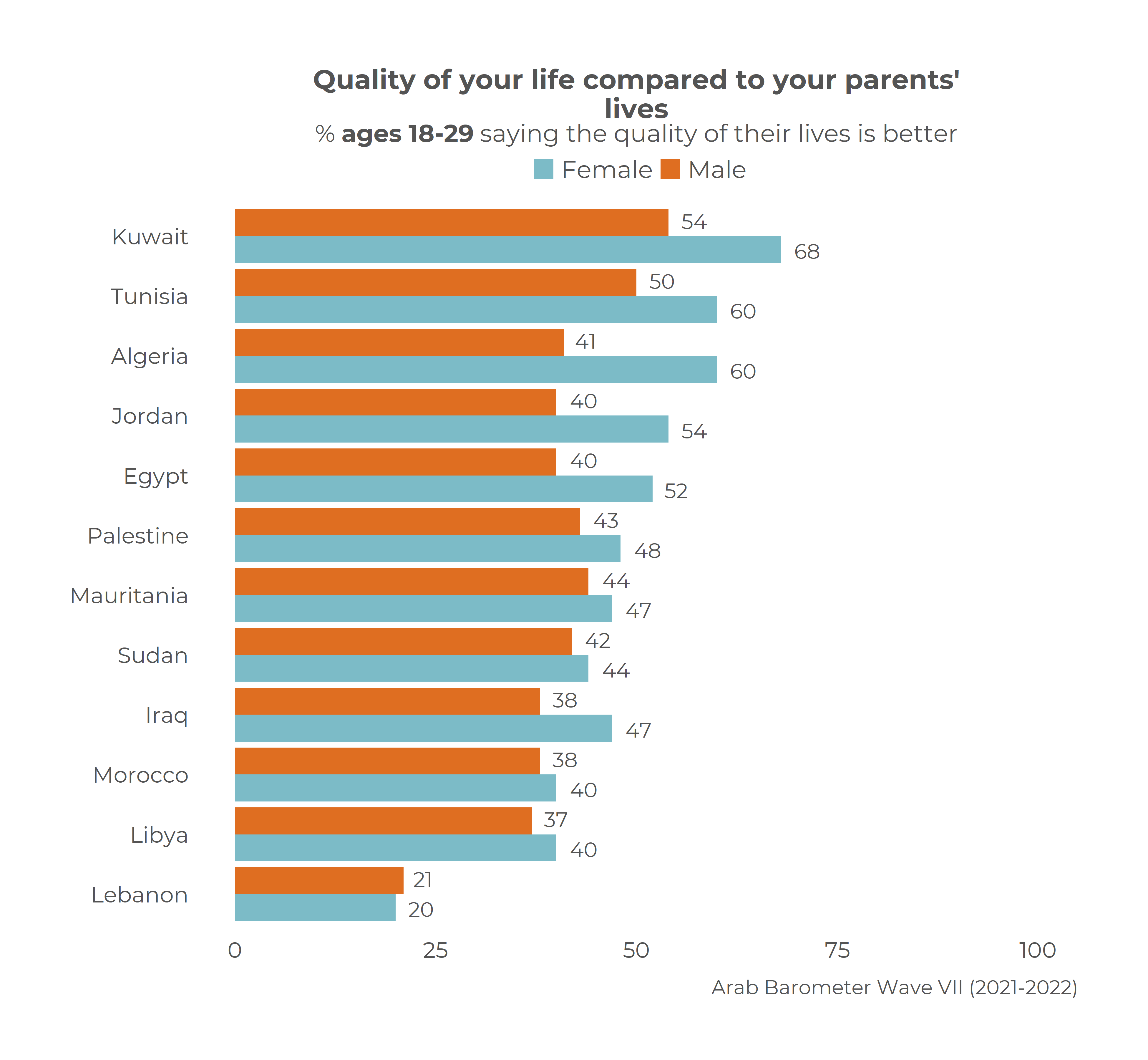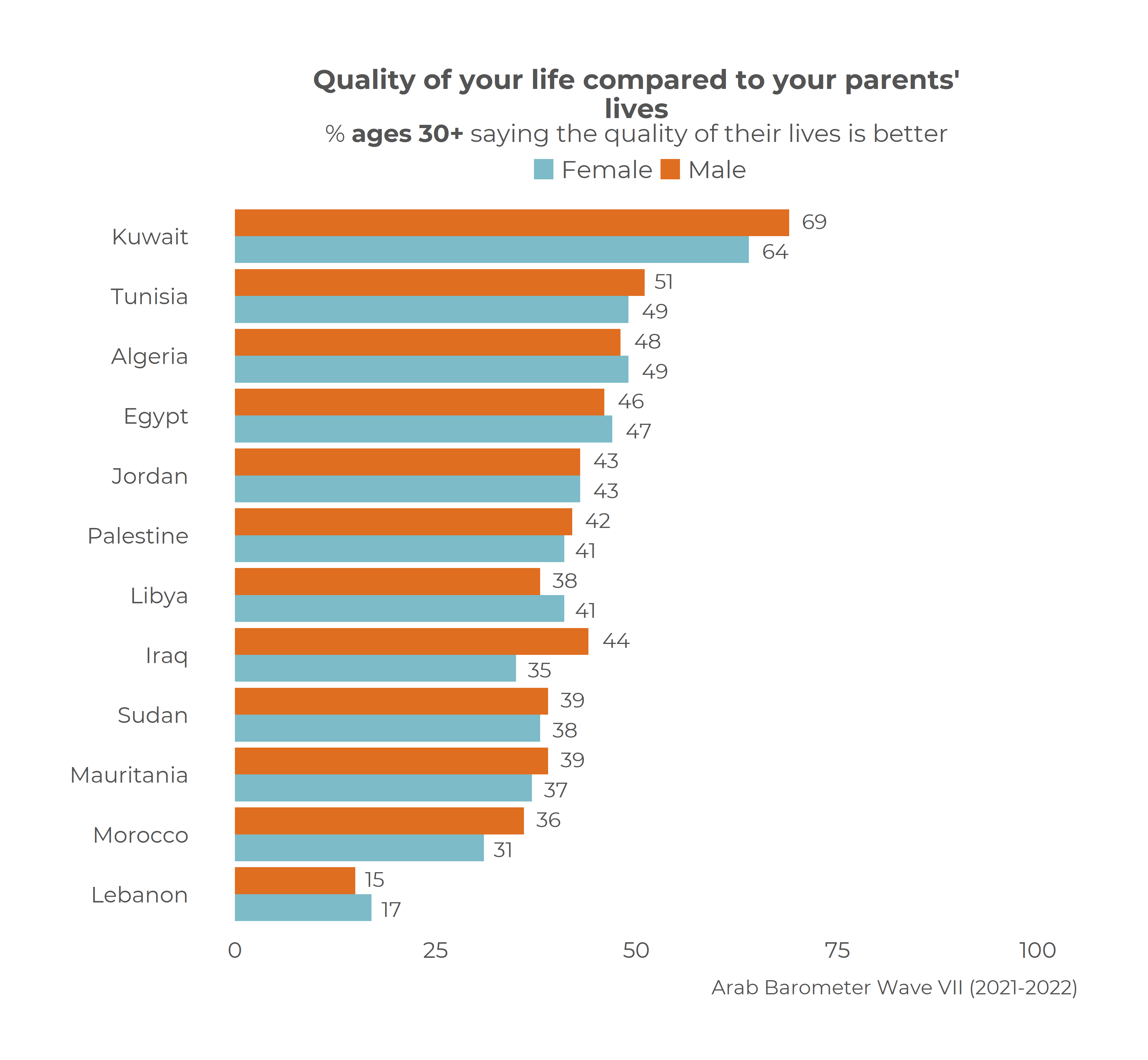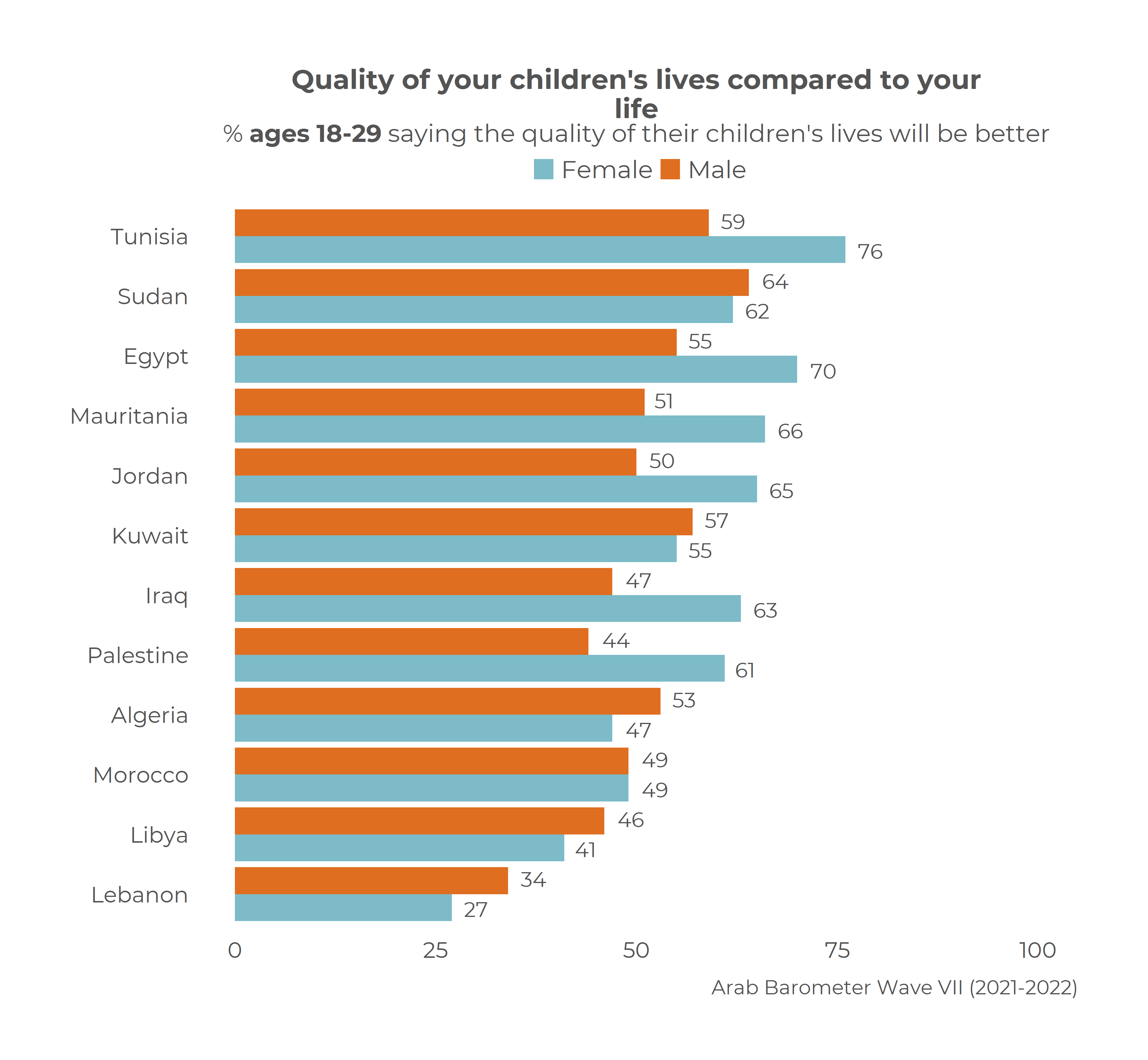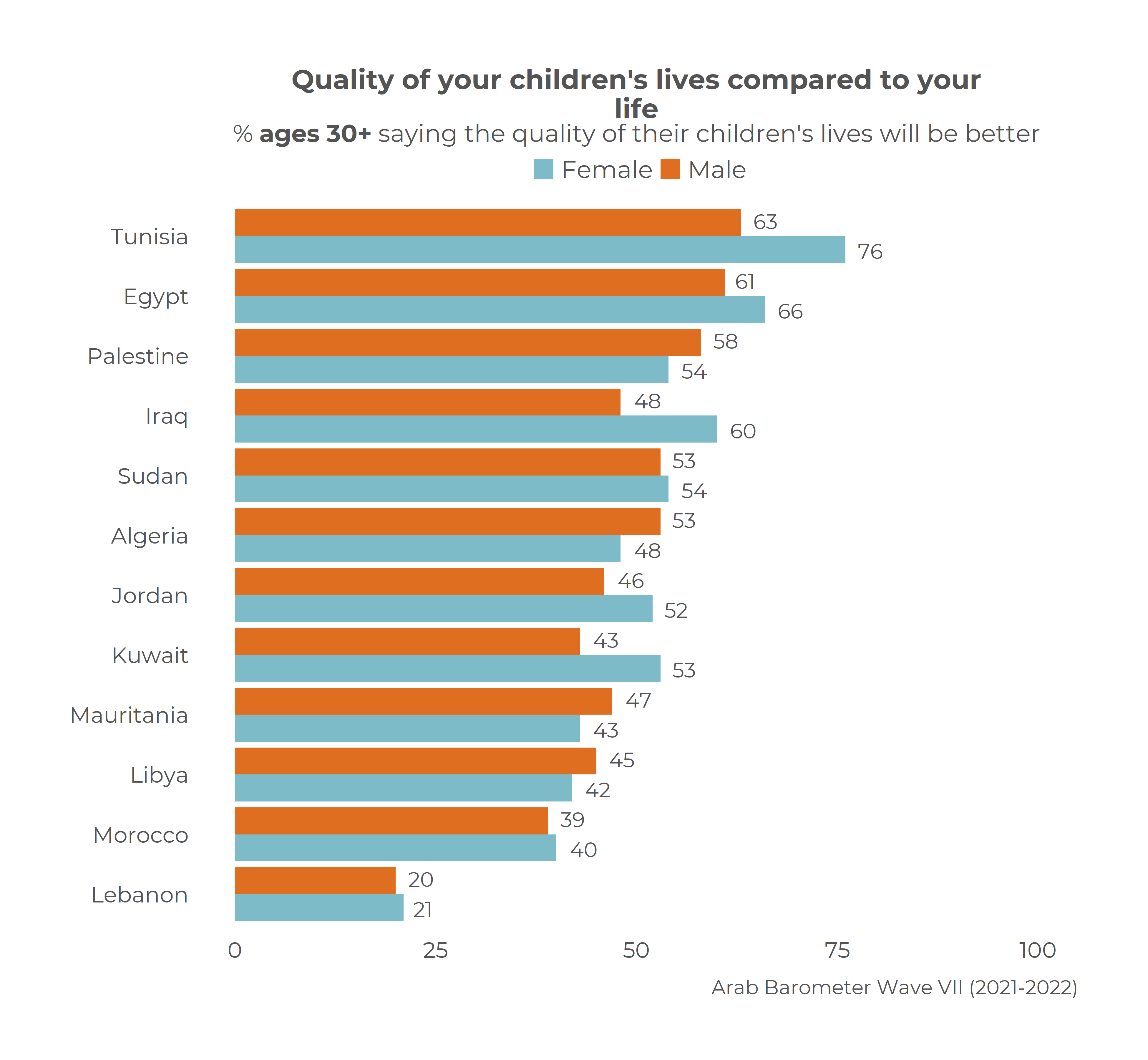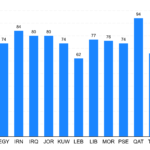What drives differences in future optimism in the Middle East and North Africa (MENA) region? Part I of this series suggested that there is no perfect correlation between quality of life and evaluations of economic conditions. MENA citizens can believe that their quality of life in the future will be better, even if they simultaneously have less faith in the economic situation improving in the coming two to three years. Furthermore, age alone was not a factor in explaining differences. With few exceptions, opinions of youth ages 18 to 29 did not differ significantly from older cohorts ages 30 and over.
Part II of this series suggests that rather than age alone, it is the intersection of age and gender that crystallizes significant differences between young and older MENA citizens. It additionally reveals country-specific patterns, with the youth in Sudan and Mauritania being significantly more positive than their older counterparts. Introducing gender as a factor highlights that young women are more positive, especially in Mauritania and Sudan, and particularly in questions about quality of life. This offers insight into perhaps a gendered socialization of future outlooks, where women, especially young women, tend to exhibit more positive attitudes than their older and male counterparts.
Overall, women are more positive than men, with young women being more positive in country-specific cases – Mauritania and Sudan – than both men of their age cohort and older women. In nine countries, young women are more likely than women ages 30+ to say that the quality of their lives is better than their parents’. The gap is particularly large (10+ percentage points) in Tunisia, Algeria, Jordan, Mauritania, and Iraq. Young women in six countries are also more likely than women aged 30+ to say that their children’s lives will be better than theirs, showcasing more optimism.
In addition to gaps among different cohorts of women, there are also significant differences between young men and young women. Young women in seven countries are likelier than young men to say their quality of life is better than their parents’. In six countries, young women are likelier than young men to believe the quality of their children’s lives will be better than their own.
This positive pattern among young women compared to older women does not robustly hold when asked about the state of their country’s economy.
Regarding the current state of their countries’ economies, only in Iraq (+13 points) and Sudan (+5 percent) are young women more positive than older women. On the future state of their countries’ economies, Algeria and Egypt are the only countries where young women are significantly more positive compared to women aged 30+ (Algeria: + 6 points, and Egypt at + 5 points). When compared to men, young women are more positive than young men about the future of their countries’ economies in six countries, and women ages 30+ in five countries compared to men ages 30+.
In Mauritania, young people and especially young women are more positive compared to older women, particularly on questions covering life quality. Youth in Mauritania are more optimistic about questions on life quality compared to older generations. Mauritanian youth show the largest difference when it comes to their quality of life, with a + 7-point percent gap between the two age-groups. The difference between age-groups is also substantial when asked about their children’s quality of life, with a + 13-point gap. Young Mauritanian women are especially more optimistic than older age cohorts about life quality, at + 10 points higher than older women on their current life quality, and at + 23 points higher on the future of their children’s life quality. Mauritania’s population is predominantly young with more than 60 percent of the total population being under the age of 25. While there isn’t much that speaks to the attitudes of Mauritanian youth, an interesting avenue of exploration is their social and political participation and whether this contributes to the particular positivity on the topic of life quality.
Similarly, the youth in Sudan, both men and women, are more optimistic compared to older generations across both topics. The youth are +5 percent more likely to report positive perceptions about their quality of life compared to their parents, and +10 percent more likely to say their children’s quality of life will be better. Sudanese youth show more positive opinions about the economy, with a +5 percent gap when asked about the current economic state and a +6 percent gap on the future of the economy. Young Sudanese women are also more positive than women ages 30+ on all matters except for the future state of Sudan’s economy. They are more positive by + 5 points on the current quality of their lives and the current state of Sudan’s economy, and by + 9 points about the quality of their children’s lives. Sudanese men also notably show some positivity compared to older men. They are more positive by + 11 points on the future of their children’s lives, and by + 6 points on the future of their country’s economy.
Across most categories, the youth in Sudan have showcased more positivity than their older counterparts, and particularly young women in Sudan. This is maybe indicative of the youth’s, and especially young women’s, prominent and essential social and political participation in Sudan, considering that the age segment between 15 and 30 years old constitutes 60 percent of the country’s total population. From organizing and driving demonstrations against Al-Bashir’s rule in 2019, to leading protests against the military rule in 2021, youth are at the forefront of demanding reform and change for the future of the country, but are often not included in the governmental processes. Notably, the Arab Barometer Wave VII survey in Sudan was fielded between the 30th of January and the 11th of April 2022, one year before the most recent violence that first broke out on the 15th of April. As such, the results don’t take into account current attitudes, and need more nuancing in light of current conflict and the displacement of thousands.
Findings from the seventh wave challenge notions that the youth across the region are different in perceptions and attitudes from other age groups, calling for a further understanding and investigation of how they vary in different countries and across gender. Young women are ultimately more positive in their attitudes about quality of life and the economy, with a focus on Mauritania and Sudan. Especially in Sudan, and in the midst of the conflict and the displacement of thousands of people, a nuanced approach is needed; one that centers Sudanese voices and efforts at this juncture.
